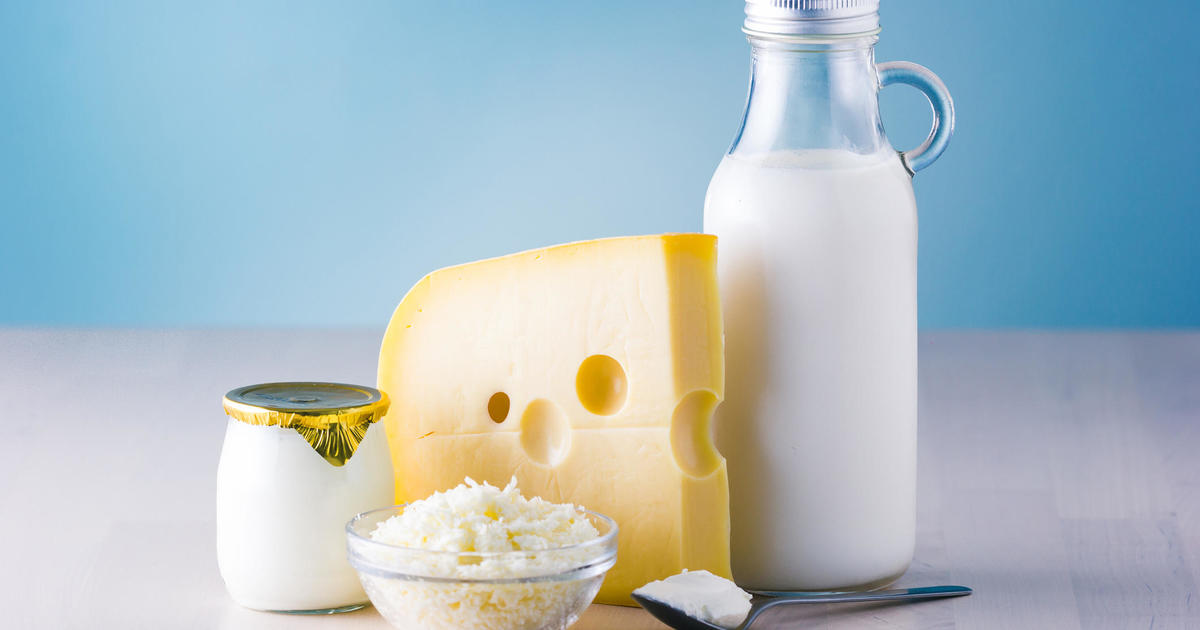Milk does a body good, right? Well, a growing number of researchers and doctors are challenging that idea, saying we may not need dairy at all, according to a new report from the Wall Street Journal.
In terms of relying on dairy for certain nutrients, it’s true that it’s not needed, said Dr. Dariush Mozaffarian, cardiologist and professor of medicine and nutrition at Tufts Medical School.
“We probably don’t need all the calcium and vitamin D from dairy,” he told CBS News. “There’s other sources you can have, plant-based alternatives that have supplemented calcium or vitamin D that’s led to a moderation around recommending dairy specifically.”
Plus, like any food, you could emit any single item from your eating and “still craft a healthy diet, so you don’t need to eat dairy,” he said.
But there’s reason to not empty your cheese drawer just yet.
Dietary guidance of dairy, which promotes eating three servings a day focused on low fat options, has been “based on oversimplified theories around a few nutrients we need,” Mozaffarian said, namely calcium and vitamin D. “But that kind of theory is being replaced now with real research around the health of dairy.”
Mozaffarian said some examples of dairy benefits include:
- Milk is linked to lower risk of high blood pressure and lower stroke
- Cheese and yogurt is linked to lower risk of diabetes
- All dairy seems to be linked to greater muscle mass and less fat mass
“Those benefits seem to be really unrelated to the traditional fat or calcium or vitamin D content, but related to other things, for example, fermentation of cheese or probiotics in yogurt,” he said. “Probiotics in yogurt are good for our gut microbiome and probably reduce risk of diabetes. And cheese is actually the top fermented consumed in the United States, and we’re learning about health benefits of fermented foods like kimchi or sauerkraut.”
So how much dairy should you eat?
Mozaffarian says he recommends patients have one serving of unsweetened yogurt and cheese every day if they eat dairy.
“It’s more for cardio-metabolic benefits than for calcium and vitamin D,” he said, adding whether it’s low fat or whole fat doesn’t seem to influence the health benefits. “For years, we’ve recommended nonfat or skim dairy, which doesn’t taste very good. And I tell people, until we have more evidence, right now, choose low fat or whole fat, which whichever you prefer.”
